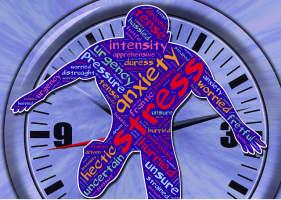Widgetized Section
Go to Admin » Appearance » Widgets » and move Gabfire Widget: Social into that MastheadOverlay zone
Rethinking the “Emotion” of Emotional Labor in Public Administration
The views expressed are those of the author and do not necessarily reflect the views of ASPA as an organization.
By Geri Miller-Fox
December 16, 2016
For those who are not familiar with emotional labor, the term was originally coined by Arlie Hochschild. As a young researcher, Hochschild was particularly impacted by her work with flight attendants who were routinely trained to put on a smile and fake emotional happiness, regardless of the circumstance. Hochschild observed that employees may feel one way, but be expected to act in another. Therefore, emotional labor is known as the emotional expressions, both physically and emotionally that are required in order to perform successfully in an occupational setting.
As you might imagine, no one wants a flight attendant or surgeon to lose their composure in the event of an unexpected equipment failure, just as we hope a law enforcement officer would not experience an emotional meltdown in the middle of a crisis situation. Emotional labor is important in a major crisis, but it is also just as important in less critical interactions. Mishandling low-risk interactions quite literally may turn situations into critical incidents. For this reason, agencies dedicate substantial amounts of money to train employees about proper workplace conduct and emotional regulation.
Emotional labor is required in the workplace, but it may also come at a great price, especially for those who work in public administration. There is a widespread acknowledgment of emotional labor in professions such as the military, law enforcement, firefighting and corrections. Although the unique stressors of these public service careers are appreciated, little research is occurring to identify the underlying physiological dynamics related to emotional labor. The demands of emotional labor seem to have lasting and negative psychological and physiological effects. Employees who engage in emotional labor may experience symptoms of burnout, exhaustion, mental fogginess, and low energy among other things. These symptoms are also closely associated with deeper hormonal processes and potential illnesses which can be detected, for example, in stress hormones such as cortisol.
Emotional labor research generally frames human behavior through a cognitive or rational choice model. This means that emotions are often viewed as more of a choice rather than a physiological process. Most emotional labor research is silent with regard to the discussion around the processes of emotion and how emotions work. Emotional labor research has neglected the physiological aspects of emotion. It is clear that a more comprehensive view of emotional labor is needed. Future research should focus on expanding the cognitive framework to one that includes a greater understanding of physiological processes associated with emotional labor. Certainly, if both cognitive and physical aspects of emotions are emphasized and researched, we can expect a greater understanding and different approach to employee wellness.

Given many of the recent events involving first responders, it is evident that emotional labor research is not only relevant, it is necessary. Police, correctional officers, and firefighters are presently under siege as a result of an unprecedented number of physical attacks specifically aimed at these professionals. At the same time emergency personnel are being targeted, they are also being criticized by some members of the public and the media. These dynamics undoubtedly have a significant effect on the public servants who perform these vital functions in the community.
Many of these public administrators have been personally impacted by direct experiences while performing their duties, but also by responding to critical incidents where peers and colleagues are injured or killed. The public servants must then render aid to the fallen, their families, and the communities who are also traumatized by these events. Without belaboring the point in the interest of space, let me just say that the impact of these threats and events takes a toll on the individuals who serve the public in these important roles. This example is extreme but it highlights the breadth of situations one is exposed to in public service professions. While the realities of emotional labor can be respected in these acute situations, chronic exposure to emotional labor in less extreme circumstances also has significant consequences.
Employees are routinely expected to suppress emotions of fear, stress, frustration, and anger so that they might appropriately perform their duties. Simply concealing or suppressing an emotion does not eliminate the fact that the emotion is still fully and chemically experienced in the nervous system. The mind, body, and organs are affected by the surge of hormones related to emotion, yet the actor must behave in ways that are acceptable in their work environment but incongruent with their true feelings. This repetitive cycle of emotional stress, emotional suppression, and incongruent emotional expression evokes physiological consequences.
There is strong evidence to suggest that emotional labor can be studied and understood using the traditional methodology, but it is becoming abundantly clear that public administration scholars must also embrace a view of emotional labor as a complex physiological process. Too often, cognitive models explain emotional regulation, suggesting actors have greater influence over emotional responses than might actually be the case. Individual hormonal responses are clearly related to emotional responses and it is time to more thoroughly explore and evaluate the complexity of these interactions, particularly with regard to emotional labor and employee wellness.
Author: Geri Miller-Fox has more than 20 years of academic, correctional and peace officer experience. She is recognized for her work in evidence-based practices, emotional survival and stress management programs. She has degrees in psychology, biology, and public administration and is working on a political science Ph.D. through the University of Utah. Email: [email protected].


 (3 votes, average: 4.67 out of 5)
(3 votes, average: 4.67 out of 5)
Follow Us!